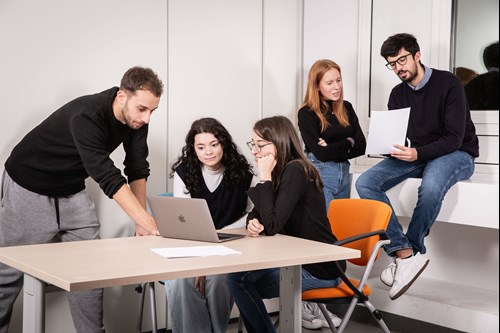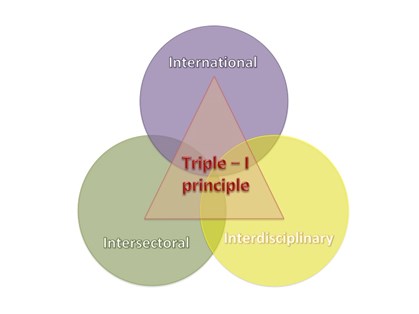Extending the institute’s scientific excellence by offering innovative research training programs


Our PhD program builds on 3 founding principles: 1) high selection; 2) intense tutoring, and 3) intense training.
Each PhD student has a supervising team responsible for monitoring the student’s progress composed of:
- supervisor (head of the laboratory in which the student carries out his/her research project);
- internal advisor (SEMM faculty member)
- external advisor (international expert in the specific area of the research project).
Our training, shaped by the Triple-I principle (Interdisciplinary, Intersectoral and Internationality), includes close supervision, PhD courses and a variety of activities fostered by PhD students. They consist of workshops, meetings, seminars, symposia, retreats, attendance to congresses, publication of articles and mobility stays.
Training program specifics
During the first two years of enrolment, PhD students @SEMM are offered a handful of courses on topics such as scientific writing, imaging, bioinformatics, statistics, data analysis, and others. Next, they are encouraged to benefit from courses offered at other universities/research institutes/organizations so to tailor their trainings according to their own interest. Most importantly they are encouraged to suggest and develop new courses. Students combine efforts and organize “topic” workshops. This has the added value of building a scientifically active and involved community and of fostering the students’ skills in networking. The Educational Committee and the SEMM graduate office provide guidance and support in the organization of these events.
- Seminars
SEMM offers a high-tier program of scientific seminars (SEMMinars), both from internal and external speakers. These weekly seminars are a great opportunity to share knowledge and expertise between different research groups and different institutes and to train PhD students in presentation skills. We most recently launched the PhD SEMMinar series, where are the students to propose, invite and host internationally renowned speakers
- Students’ Data club series
During the second year of enrolment, data clubs are organized on a monthly basis. Two students will present their data to their peers at each meeting. These meetings are intended to be very informal and aim to stimulate scientific discussion. Data club schedule and organization are self-managed by the students.
- Report writing and public presentations
There is more to science than just doing experiments. To foster writing and presentation skills, our students are required to write progress reports, next evaluated by the supervising team, and to communicate their findings both at internal seminar and by attending international conferences. This is worthwhile, whatever the career plan of the student is, as it helps develop transferrable skills in public speaking and presenting, gain feedback on results and begin to be recognised as an expert in his/her area of interest. Conferences are also great places to network with other students and academics.
- Soft skills training
With many graduates looking for jobs outside of academia, a doctoral training tailored for academic people is anachronistic. Learning non-scientific skills is an important aspect of a researcher's training as it contributes to their broader professional development. To help our students acquire “transversal skills” we offer, both in house and in collaboration with the University of Milan, courses that include science communication, experimental design, ethics, publication, funding, research integrity and others. In addition, our PhD students benefit from career development workshops and most importantly are encouraged to develop new initiatives and to organize activities such as a workshops and symposia.
